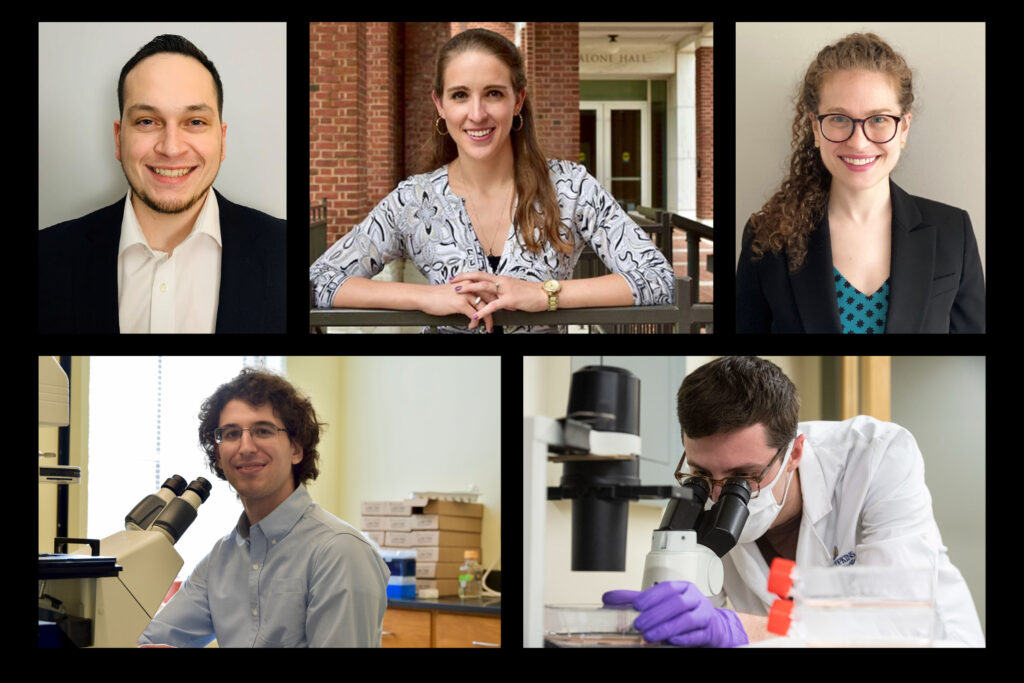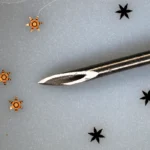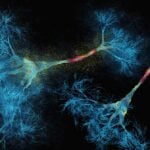Caps Off to You, 2021 Graduates

Above photo, clockwise from top left: Robert Law, Morgan Elliott, Alexandra Sneider, Raleigh Linville, and Michael Paul.
The Institute for NanoBioTechnology community congratulates our graduating students and all graduating students at Johns Hopkins on their much deserved success. Students encounter a variety of challenges, and opportunities, while working on their degree, but there was none like adjusting to the COVID-19 pandemic. The students navigated through the pandemic to finish their studies successfully and we are impressed with all they have achieved. We wish them well as they embark on the next phase and journey in their lives and are happy to highlight some of our 2021 graduating students.
Raleigh Linville
The blood-brain barrier (BBB) is a cellular interface between the brain and bloodstream that plays a critical role in maintaining homeostasis. In vitro models that accurately mimic both structural and functional hallmarks of the human BBB are lacking. In Peter Searson’s lab, Raleigh Linville developed BBB models with these hallmarks by combining stem cell technology and tissue engineering. These models have since been applied to develop strategies for drug delivery into the brain and to explore mechanisms of BBB dysfunction during cancer and neurodegenerative disease.
Linville earned his PhD in biomedical engineering under the mentorship of Peter Searson, co-founder and core faculty member at the Institute for NanoBioTechnology and professor in the Department of Materials Science and Engineering at Johns Hopkins University. Linville will soon join Myriam Heiman’s lab at the Broad Institute where he will continue to explore the BBB with particular interest in transcriptomic profiling of the human BBB during health and disease. He has particular interest in developing BBB models to better study neurodegenerative disease mechanisms.
Social media
Connect with and follow Linville on Twitter and LinkedIn
More about Linville
Raleigh Linville Recieves NSF GRFP Award
Highlights of the 4th Annual INBT Undergraduate Symposium: Innovation Through Engineering
Morgan B. Elliott
As part of Sharon Gerecht’s laboratory, Morgan Elliott focused on improving the clinical and commercial relevance of engineered blood vessels to benefit patients with cardiovascular disease. She has mentored eight students from high school to graduate level and served as lab captain for four years, which involves managing lab operations and coordinating with other labs within the INBT. She and Gerecht are now working to commercialize the vascular graft device that they developed (see story below).
Elliott earned her PhD in biomedical engineering under the mentorship of Sharon Gerecht, director and core faculty member at the Institute for NanoBioTechnology, professor in the Department of Chemical and Biomolecular engineering at Johns Hopkins University, and the Edward J. Schaefer Professor in Engineering.
Social media
Connect with and follow Elliott on LinkedIn
More about Elliott
Five Johns Hopkins Students Named Siebel Scholars
Researchers Develop a Lab Grown Blood Vessel Graft Made from Natural Polymers with Regenerative Properties
Michael Paul
While a student at the INBT, Michael Paul used quantitative florescence microscopy to study membrane protein interactions in live cells. Specifically, he studied the strengths of interaction of receptor tyrosine kinases (RTK), which are a family of proteins critical for proper cell growth and tissue development, and RTKs misfunction in many diseases and cancers.
Paul earned his PhD in biophysics under the mentorship of Kalina Hristova, core faculty member at the INBT and professor in the Department of Materials Science and Engineering. Now a postdoctoral fellow at the University of California San Francisco, Paul is studying how an understudied protein (CNPY4) modulates the sonic hedgehog pathway. The sonic hedgehog pathway is important for proper limb development. He is investigating this protein using a mix of biochemistry, biophysical, and structural biology techniques.
More information about Paul
Student Research Spotlight: Michael Paul
Alexandra Sneider
In her research, Alexandra Sneider studied the role of extracellular vesicles (EVs) in cancer metastasis. An increase in extracellular matrix stiffness enhances cancer cell migration and proliferation in primary tumors. Using primary patient tissues, Sneider observed that stiff tumor tissue produces significantly more, small (50-200 nm) extracellular vesicles than soft, adjacent tissue. She showed an alternative and complementary hypothesis of tumor progression whereby physiological matrix stiffness affects the protein cargo of small EVs produced by cancer cells, which in turn drive their metastasis.
In another project, Sneider studied the use of a deep learning algorithm and mechanical measurements of fresh patient tissue to create a bridge between clinical and mechanical markers by showing the relationship between stiffness and tissue composition. Identifying cellular and extracellular features from hematoxylin and eosin (H&E)-stained slides revealed that global and local breast tissue stiffness best correlate with straight collagen percentage. Furthermore, the percentage of mammographically dense breast tissue does not correlate with tissue stiffness or straight collagen.
Sneider earned her degree PhD in chemical and biomolecular engineering under the mentorship of Denis Wirtz, INBT co-founder and core faculty member of the Institute for NanoBioTechnology, Vice Provost for Research, and Theophilus Halley Smoot Professor in the Department of Chemical and Biomolecular Engineering. She was also mentored by Karin Eisinger, the Ann B. Young Assistant Professor in Cancer Research University of Pennsylvania Perelman School of Medicine. Sneider is now an associate at Flagship Pioneering on Geoff von Maltzhan’s team and involved in venture creation. Flagship Pioneering combines science and entrepreneurialism to create and build companies around breakthrough technologies that transform healthcare and sustainability.
Social media
Connect with and follow Sneider on LinkedIn
More information about Sneider
Five PhD Students from Johns Hopkins Named Siebel Scholars
Professional Advice and Life Lessons Shared at Women in STEM Symposium
Robert Law
Robert Law’s research aimed to delineate the mechanisms governing collective cell behaviors in confining microenvironments with direct applications to cancer migration and metastasis. Law and his collaborators designed and used assays to model tumor dissemination in vitro using PDMS and polyacrylamide-based microfluidic platforms that mimic tissue tracks and common routes of metastasis within the human body to study the resulting effects of confinement on collective cell migration.
Law earned his PhD in chemical and biomolecular engineering under the mentorship of Konstantinos Konstantopoulos, core faculty member at the INBT and William H. Schwarz Professor in the Department of Chemical and Biomolecular Engineering. Having just completed his degree, Law currently looking for full-time employment as a scientist operating in the private sector.
Social media
Connect with and follow Law on LinkedIn.
Latest Posts
-
 Johns Hopkins Postdoc Named in Forbes `30 Under 30′ List
December 8, 2025
Johns Hopkins Postdoc Named in Forbes `30 Under 30′ List
December 8, 2025
-
 Micro Grippers: David Gracias Builds Micromachines That Fold, Stick, Swim, and Sense—All Inside the Human Body.
November 20, 2025
Micro Grippers: David Gracias Builds Micromachines That Fold, Stick, Swim, and Sense—All Inside the Human Body.
November 20, 2025
-
 A bold new approach to autoimmune diseases
November 19, 2025
A bold new approach to autoimmune diseases
November 19, 2025


